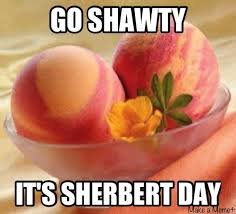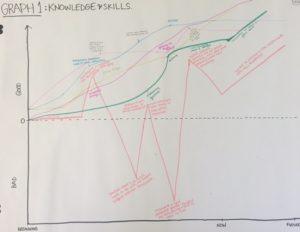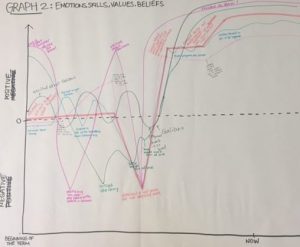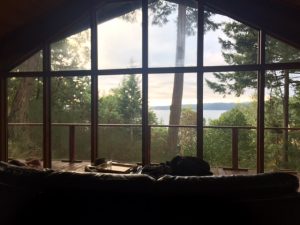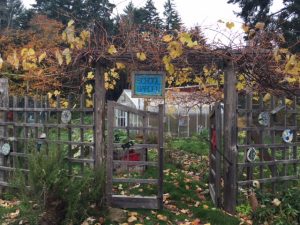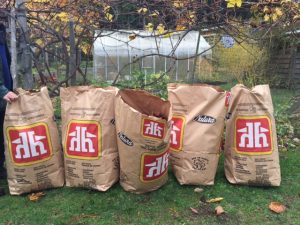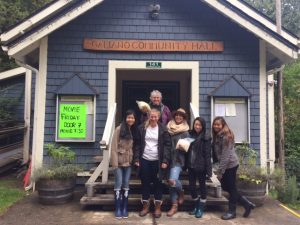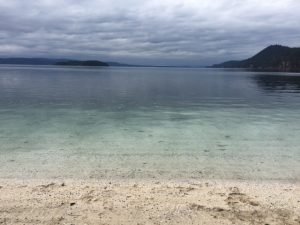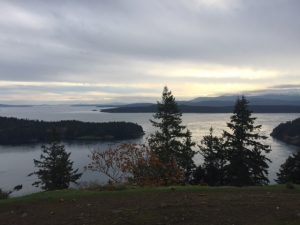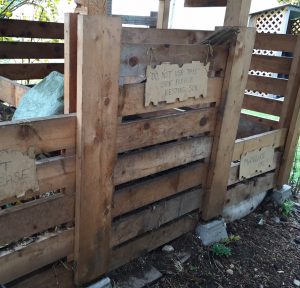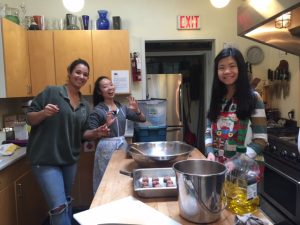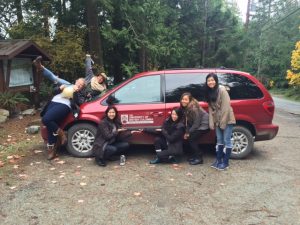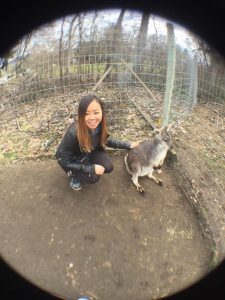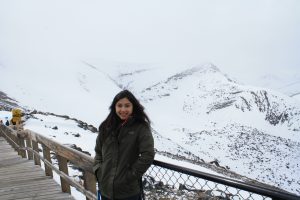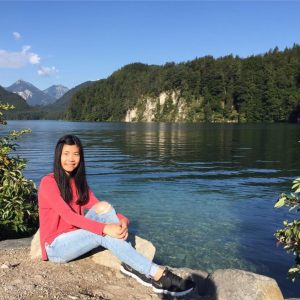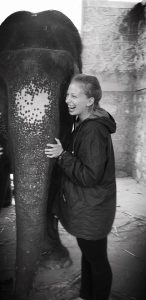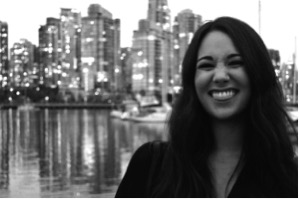It’s Time to Say Goodbye
Unfortunately, we must say farewell, but that doesn’t mean we can’t enjoy one final food joke!
Q: What did the ice cream say to its fruity friend on her birthday?
Keep reading to find out!
A Moment of Significance
At the beginning of the course, we each decided to choose the “Galiano Island Community Food Program – How Long Will You Last?” project, because we were interested in investigating the island food system. When we recieved the brief information about the project and the island on which it is based, we had the impression that Galiano Island would be a remote area.We assumed that the main issue of their food system is the difficulty of importing food via ferry. However, after interacting with the residents on the island, we realized that the residents are fully aware of the possible food insecurities on the island, which makes them very self-reliant. We also learned that ferry unreliability does not pose as big an issue as we assumed. Therefore, the most significant challenge the food system faces is not a transportation issue, but rather other limitations such as water resources and soil fertility.
We were outsiders coming to Galiano island and were strangers to its food system. Hence, our knowledge was limited on the basis of food security issues pertaining to the island. We did observations around the island, conducted interviews with the residents and created an online survey, to form new conclusions and findings about the Galiano food system. However, due to our preconceptions of how the food system would be prior to going to the island, we crafted our proposal accordingly to try and investigate the reliance of imported food and possible issues with the ferry system. This, however misguiding it may have been at the time, was a valuable learning opportunity and experience in being flexible and adapting to the situation. As a group, we worked together to change our proposal as well as our interview questions accordingly. The semi-structured format of our interviews allowed a lot of additional information to flow in. Not only did we gain knowledge from each interview, but we gained more question prompts pertaining to the more environmental limitations and solutions to their food security, rather than just focusing on food imports. This was a learning lesson in being open to new information and using that as the foundation of our research rather than the preconceptions we had.
Implications of this Moment
In the beginning of the project, our perspective about food security on Galiano island was somewhat biased, due to the name given to our project: “How Long Can You Last?”. Learning that Galiano island imports some of its food by ferry services led us to assume that they are not self-reliant. Based on the assumption that food import is the biggest issue that affects food security, we designed our survey questions to assess the level of food security on the island by finding out how much they rely on imported food. However, the responses from the residents were completely different than what we had expected – they turned out to be far more food secure than we thought due to the robust food growing culture and strong sense of community. After hearing stories about how they conserve water or store food in preparation for emergencies, we realized that limited water resources and extreme weather events are their priority concerns. When we were writing our academic review papers, we had to change the identified issue from food import to water or climate problems and we had difficulty establishing the claims related to the issue due to insufficient supporting evidence from the interviews and surveys which probed for information in the wrong direction.
In the podcast Failure Is Your Friend, “premortem” is mentioned as a technique that ensures the success of a project by thinking in advance about all the ways things can go wrong, so that strategies can be developed to prevent failure. If we had done a comprehensive research beforehand on the challenges faced by Galiano island, such as reading the Island Trustee reports about issues on the island, and considered a wider range of risk factors for food insecurity, we would likely have foreseen that studying the reliance on food import was not appropriate in the context of Galiano island. We would have known to direct the focus of the interviews and surveys, to environmental problems and the strategies the island residents use to cope with them. With more useful information collected, we would have been able to address these issues in more depth in our academic review papers, to better identify the limitations of the island infrastructure, and to provide more constructive feedback for possible improvements.
Looking Forward
Going into the future, we acknowledge that we need to do a few things to improve ourselves… especially with projects! We realized that we need to lay out all of our shortcomings before we begin our project. By shortcomings, we mean the possible limitations that we could encounter and try to come up with solutions. Our biases can also play a role in shifting the project’s direction, so we need to recognize them throughout the project. We agreed it is better for us to not put so much weight on the suggested project direction when working on experiential learning projects… To think of constructive criticism as feedback that’s targeted to build on ideas rather than to tear them down. We also realized the importance of being prepared for a project. An academic research in the beginning can show the right direction of a project and improve the quality of the information gathered during the study. Additionally, it may also provide the right questions to ask our instructors to help further guide the progress of our project.
Beyond the scope of this course we have learned a variety of lessons, both individually and as a community. This course has taught the benefit of active and hands-on learning, something we will search for in the future. Furthermore, looking beyond us as individuals and viewing our Vancouver community food system, we believe that our residents could stand to learn a few things from Galiano Island. Vancouver would benefit from lessons in land conservation, the finiteness of water, the benefit of growing one’s own food and the limitless potential of community members when they serve each other in solidarity and exude cohesive strength.
Now that we are at the end of the project, we strongly suggest that changes be made to the curriculum pertaining to the Galiano project for next year, putting the emphasis on the impacts of environmental issues on food security. Though it was our responsibility to conduct more academic research before advancing in our project, we believe that we all misinterpreted the title of the project, and the description found on the course website. Having known to focus more on the environmental issues rather than ferry issues, we all would have had a consensus to approach the project differently. We made an infographic summarizing our findings about strategies to increase the self-sufficiency of the food system that contribute to their self-reliance and were happy to present our findings to peers in order to raise awareness of the issues we identified. By the end of the term, we will write a final report which we hope will provide a base for further research to be carried out by another group of LFS students next year.
Reference:
Cohn, G. (2015, May 20). Failure Is Your Friend: A Freakonomics Radio Rebroadcast [Audio blog post]. Retrieved November 27, 2016, from http://freakonomics.com/podcast/failure-is-your-friend-a-freakonomics-radio-rebroadcast/
We want to thank you for reading this blog and all our others and leave you with, arguably, our funniest joke yet.
Q: What did the ice cream say to its fruity friend on her birthday?
A:
